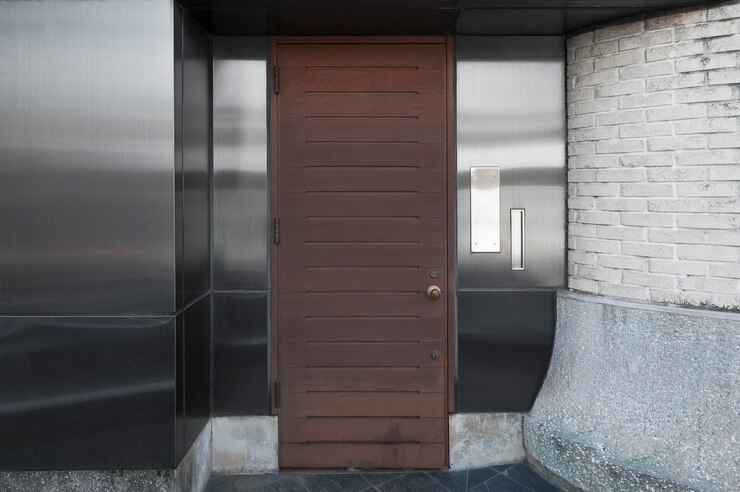Guide to ADA-Compliant Doors in Burnaby: What Business Owners Need to Know
As a business owner in Burnaby, ensuring your establishment is accessible to everyone is crucial. Not only is it a moral and social obligation, but it’s also a legal requirement under the Accessible Canada Act which requires federal and provincial businesses in the public and private sectors to make their properties accessible by people with disabilities. While the ADA originated in the United States, its standards are relevant in Canadian businesses due to shared accessibility principles and customer expectations. Installing ADA-compliant doors is a significant step towards enhancing accessibility, improving customer satisfaction, and demonstrating a commitment to inclusivity. Here’s what you need to know about making your doors ADA-compliant in Burnaby.
Understanding ADA Compliance for Doors
Key Requirements for Door Accessibility
The ADA outlines several requirements to ensure that doors in commercial spaces are accessible to everyone, including individuals with disabilities. One of the primary specifications is the width of doorways. An ADA-compliant door must be at least 32 inches wide when the door is fully open. This width ensures that wheelchairs and other mobility devices can pass through with ease.
Another critical requirement is the door handle. The handle should be easy to grip and operable with one hand. This means it shouldn’t require tight grasping, pinching, or twisting of the wrist. Lever handles are often preferred. Additionally, the door’s opening force should be minimal, allowing easy access without significant physical effort.
Space and Placement Considerations
Space around the door is another important factor for ADA compliance. Clear floor space must be provided on both sides of the door so that individuals can approach, reach the handle, and navigate through without obstruction. This space must accommodate the turning radius of wheelchairs, ensuring that those using mobility devices can maneuver comfortably.
Placement considerations also include the height of thresholds, which should be as low as possible to allow smooth movement. Raised thresholds can be challenging for wheelchairs and should not exceed a half-inch in height unless a beveled edge is added.
The Impact of Compliance on Business Accessibility
Enhancing Accessibility for All Customers
Achieving ADA compliance with your doors means creating an environment where all customers feel welcome and valued. Customers with disabilities or mobility challenges often face barriers when accessing businesses. By installing ADA-compliant doors, you remove these barriers and promote inclusivity. This move not only attracts more customers but also builds a positive reputation for your business as one that cares about accessibility.
Boosting Customer Satisfaction
Customer satisfaction is vital for any successful business. ADA-compliant doors can significantly boost customer satisfaction because they facilitate ease of access. When customers can enter your business without difficulty, their overall experience improves. Satisfied customers are more likely to return and recommend your establishment to others, ultimately benefiting your business in the long run.
Compliance and Legal Obligations
Avoiding Penalties and Legal Issues
Failing to comply with accessibility regulations can lead to legal issues and penalties. While ADA standards specifically pertain to the United States, similar regulations exist in Canada, such as the Accessible Canada Act (ACA) at the federal level, and different provinces have their own accessibility laws. Non-compliant businesses may face fines or legal action, leading to financial and reputational damage. Ensuring your doors meet ADA or equivalent standards helps avoid these consequences and secures your business legally.
Aligning with Ethical Business Practices
Beyond legal compliance, following ADA guidelines aligns your business with ethical practices. Supporting accessibility reflects a commitment to social responsibility and community inclusivity. It shows that your business values every individual’s rights and needs, regardless of their physical abilities. This effort not only fosters goodwill among customers but also differentiates your brand from competitors who may overlook these important considerations.
Making the Upgrade to ADA-Compliant Doors
Considerations for Choosing the Right Doors
When upgrading your doors for ADA compliance, there are several factors to consider. Choose doors that not only meet the compliance requirements but also blend seamlessly with the aesthetics of your business. Consider automatic doors, which are highly recommended due to their convenience and ease of use for everyone. Automatic options further ease access and provide a more modern entrance that appeals to a broad range of customers.
Working with Professionals
To ensure your compliance efforts are thorough and effective, consider working with professionals who specialize in accessible door solutions. Experts can assess your current setup, recommend the best upgrades, and ensure that your doors comply with all necessary regulations.
If you are a business owner in Burnaby looking to upgrade to ADA-compliant doors, consider partnering with Doormate, Burnaby’s leading commercial door company. Doormate has experience in providing ADA-compliant and accessible door solutions tailored to your business’s specific needs.
By choosing Doormate, you ensure a seamless integration of accessibility standards that enhance customer satisfaction and support inclusive business practices.
Contact Doormate today to explore their range of ADA-compliant doors and take the crucial step towards making your business accessible to all.

